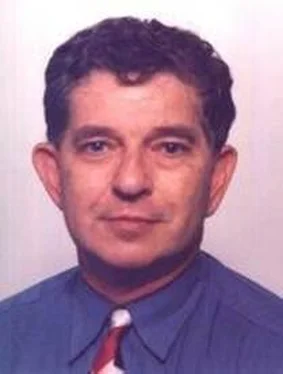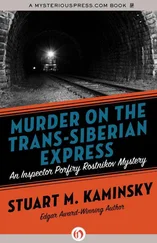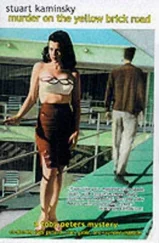The bastard’s going to make this difficult for me, Adam thought. “Any questions I can answer, anything I can help you with before you leave?”
“Yes,” Janson said. “My name is Janson, not Jaston.” He rose to his feet, running a hand up the scruff on his neck and along the ridge of his jaw. He leaned over the desk and plucked his tattered story from the other papers. A memo floated loose from atop the stack and fluttered down like a feather to Adam’s desk, but neither man turned his eyes to the distraction. They kept them locked, until Adam felt that his would bruise on the hardness of Janson’s. Janson squinted slightly, and Adam felt him looking over and through him before he turned.
“Oh yeah. I forgot to tell you. There’s a part missing at the end of the manuscript. Maybe even just a word.”
“Yeah,” Janson said. “There is.”
The door clicked softly behind him as he exited, and Adam’s breath left him in a rush of relief. He felt better with the door between them.
JANSON WALKED OUTonto the crowded New York streets and filled his lungs with the moist New York air. Clutching his story tightly under his arm, he turned into the crowd, losing himself in the bustling sea of elbows and shoulders. It was a long walk to his apartment and an even longer walk home, and his feet ached with each touch of the concrete. The buildings rose in firm spires about him, and as his feet pattered on the sidewalk, somewhere, miles and mountains away in a lost town, a wisp of smoke curled from a country fireplace and made its way sleepily up the chimney to the darkened sky above.
Fred Menace, Commie for Hire by STEVE HOCKENSMITH
IT WAS JULYin Los Angeles, and my little one-room office was hotter than the glowing steel foundries of Minsk that were busy pouring out the molten foundation of a worldwide workers’ state. A woman walked through the door, and things got even hotter.
She was dressed plainly in a brown shirt and matching slacks, with a mannish jacket wrapped around her broad shoulders. Steel-toed boots covered the sturdy feet at the end of her stout legs. Her dark hair was cut severely, barely reaching her thick neck. But most enticing of all were her hands. They were big and calloused, the hands of a woman who wasn’t afraid she was going to break a nail when she wrestled the controls of production from the withered claws of the bourgeoisie.
I was in love.
“Are you Fred Menace?” she said, and she didn’t purr like those soft, dime-a-dozen starlets who pop up in a P.I.’s office every ten minutes. Her voice was hard and strong, yet still unmistakably feminine. She was all business, so to speak, but all woman, too.
“I ain’t Joe McCarthy,” I drawled back at her.
I instantly regretted it. Cynicism is a decadent pose, a facade of apathetic ennui that’s antithetical to the committed idealism of the true internationalist. But when you’re a private eye, it sort of gets to be a habit.
“Yes, I’m Fred Menace,” I said, dropping the hard-boiled routine. “Please have a seat, Miss…?”
She sat in one of my rickety old office chairs and locked eyes with me across my desk. She regarded me coolly for a moment before speaking.
“Smith. Mary Smith,” she said. “My brother is missing, and I want you to find him. His name is John Smith. He’s a screenwriter. He’s been gone for four days.”
No flirting, no innuendo, just the facts. I liked that. I like that a lot. I knew immediately that I was going to take the case, whether she could pay or not.
“My fee is thirty dollars a day, plus expenses,” I said anyway, just as a formality.
She nodded brusquely. “Fine. That seems reasonable.”
It was reasonable. Maybe too reasonable, but what could be done about it? I’d tried to organize the other private investigators in Los Angeles into a collective so that we could create a sliding scale tied to the means of our clients and the needs of each individual dick. Unfortunately, I hadn’t gotten very far with the idea. The other P.I.s in L.A. don’t talk to me anymore.
“Do you have some reason to suspect foul play?”
“Foul play?” Mary raised a thick black eyebrow. “I don’t know. I just know that my brother has disappeared.”
“Did he have any reason to skip town in a hurry?”
“Yes, I suppose so,” she said, still icy cool. “But that’s not John’s way. He’s a very brave, committed man. He wouldn’t just run away.”
“He wouldn’t just run away from what, Miss Smith?”
That finally warmed her up a degree or two. “The House Committee on Un-American Activities,” she said, spitting the words out as if they were a mouthful of rotten borscht. “John’s been subpoenaed. He was supposed to testify yesterday. He never appeared.”
I leaned back in my chair, my mind spinning back to the years before the war. John Smith. Screenwriter. Pinko. Sure, I remembered him now. I’d met him through the Hollywood Anti-Nazi League. He was a squirrelly little knobby-kneed guy with all the sheer animal magnetism of a paper cup. His sister had fifteen pounds on him, easy.
I hadn’t seen him since 1945-six years ago. Like so many Tinseltown Communists, his passion for revolution cooled once Hitler was out and Red-baiting was in.
“I know what you’re thinking, Mr. Menace,” Mary said, and her voice was softer now, almost pleading. “Everybody in town knows about you. You’re a proud Marxist through and through. When it comes to the fight against bourgeois capitalism, you won’t back down an inch.”
I knew she was stroking my ego, but what the hey, I liked it. The way her lips caressed the words “Marxist” and “bourgeois” was enough to get Lenin up out of his tomb.
“You got that right, sister,” I said.
“My brother… he was a true believer, really he was. But he couldn’t just throw away his career. He had to make a living.”
“I thought you said he was a brave, committed man.”
Her expression turned cagey. “Keep waving the flag of the proletariat from the mountaintops, Mr. Menace,” she said, the vulnerability gone from her voice. “But don’t think that it’s the only way to serve the cause.”
“What do you mean?”
“My brother planned on confronting the Committee. He wasn’t going to name names. He was going to throw their fascist grandstanding back in their fat faces.”
“That’s what a lot of these weekend revolutionaries say. Fifteen minutes under the spotlights and they’re coughing up names like a talking telephone directory.”
Mary reached into the pocket of her slacks-she didn’t carry a purse-and pulled out a small wad of bills. “Believe what you like, Mr. Menace,” she said as she counted out three tens. She held them out across my desk. “Just find my brother.”
I looked at the money. Sometimes it really eats me up that I run a business. But until the day an American workers’ state nationalizes private investigation services, what can I do? Like the lady said, a guy’s gotta make a living.
I took the money.
THESE DAYS, YOU’REnot a real American-which is to say amember in good standing of the dominant consumer culture-unless you own a car. So I don’t. That can be a little tough on a guy in my racket. Tailing somebody without being seen is rough enough. Tailing them when you’re relying on the Los Angeles public transit system is next to impossible. But I manage.
After picking up a bus from Wilshire to Culver City, I hitched a ride with a fruit truck and a moving van before hoofing it the last twelve blocks or so to 545 Venice Boulevard-the home of John Smith, screenwriter. It only took me three hours to get there.
Some Hollywood types go in for shabby chic-homes where a little peeling paint and crumbling stucco add a touch of faux bohemian ambiance. But the rotting wood and weed-choked yard of Smith’s little bungalow weren’t there for show. His place was just plain shabby.
Читать дальше












